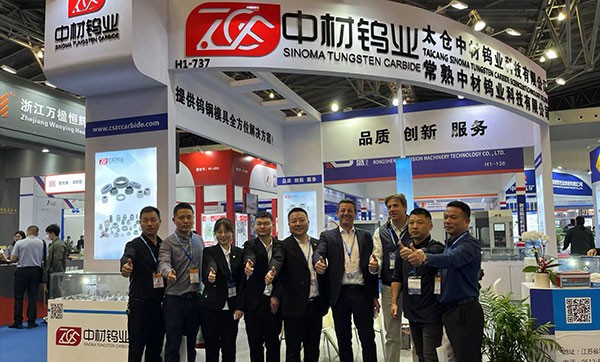In the realm of industrial manufacturing, the choice of tooling materials significantly impacts the quality, efficiency, and longevity of production processes. Among the various materials available, tungsten carbide stands out for its exceptional properties, making it a preferred choice for molds in many industries. This article delves into the reasons why using good tungsten carbide molds is crucial for manufacturers.
One of the primary advantages of tungsten carbide molds is their remarkable hardness. Tungsten carbide is one of the hardest materials available, second only to diamond. This superior hardness ensures that the molds can withstand the rigors of high-volume production without significant wear and tear. As a result, manufacturers benefit from longer mold life, reduced downtime for maintenance, and lower replacement costs.
Maintaining precise dimensions is critical in manufacturing, especially when producing parts that require tight tolerances. Tungsten carbide molds offer excellent dimensional stability, even under high-pressure and high-temperature conditions. This stability ensures consistent production of components that meet stringent specifications, reducing the risk of defects and rework.
Tungsten carbide’s high thermal conductivity is another significant benefit. Efficient heat dissipation during the molding process is crucial to prevent overheating and ensure the integrity of the molded parts. Tungsten carbide molds facilitate rapid heat transfer, enabling faster cycle times and improving overall production efficiency. This property is particularly advantageous in processes such as injection molding, where temperature control is vital.
In many manufacturing environments, molds are exposed to harsh chemicals and extreme conditions that can lead to corrosion and oxidation. Tungsten carbide is inherently resistant to these degradative processes, ensuring that the molds maintain their structural integrity and performance over extended periods. This resistance not only prolongs the life of the molds but also maintains the quality of the products being manufactured.
While the initial investment in tungsten carbide molds may be higher compared to other materials, the long-term cost-effectiveness is undeniable. The durability and low maintenance requirements of tungsten carbide molds lead to significant savings over time. Manufacturers can benefit from reduced tool replacement costs, less downtime for repairs, and increased productivity due to fewer interruptions.
Tungsten carbide molds are used across a wide range of industries, including automotive, aerospace, electronics, and medical device manufacturing. Their versatility is a testament to their robustness and adaptability. Whether it's forming, cutting, stamping, or injection molding, tungsten carbide molds provide reliable performance across various applications, making them an invaluable asset in diverse manufacturing processes.
Investing in high-quality tungsten carbide molds is a strategic decision that can yield substantial benefits for manufacturers. From superior hardness and wear resistance to excellent thermal conductivity and corrosion resistance, tungsten carbide molds enhance the efficiency, quality, and cost-effectiveness of production processes. As industries continue to push the boundaries of precision and durability, the importance of using reliable and durable tooling materials like tungsten carbide cannot be overstated. By choosing tungsten carbide molds, manufacturers are well-equipped to meet the demands of modern production challenges and maintain a competitive edge in their respective markets.




